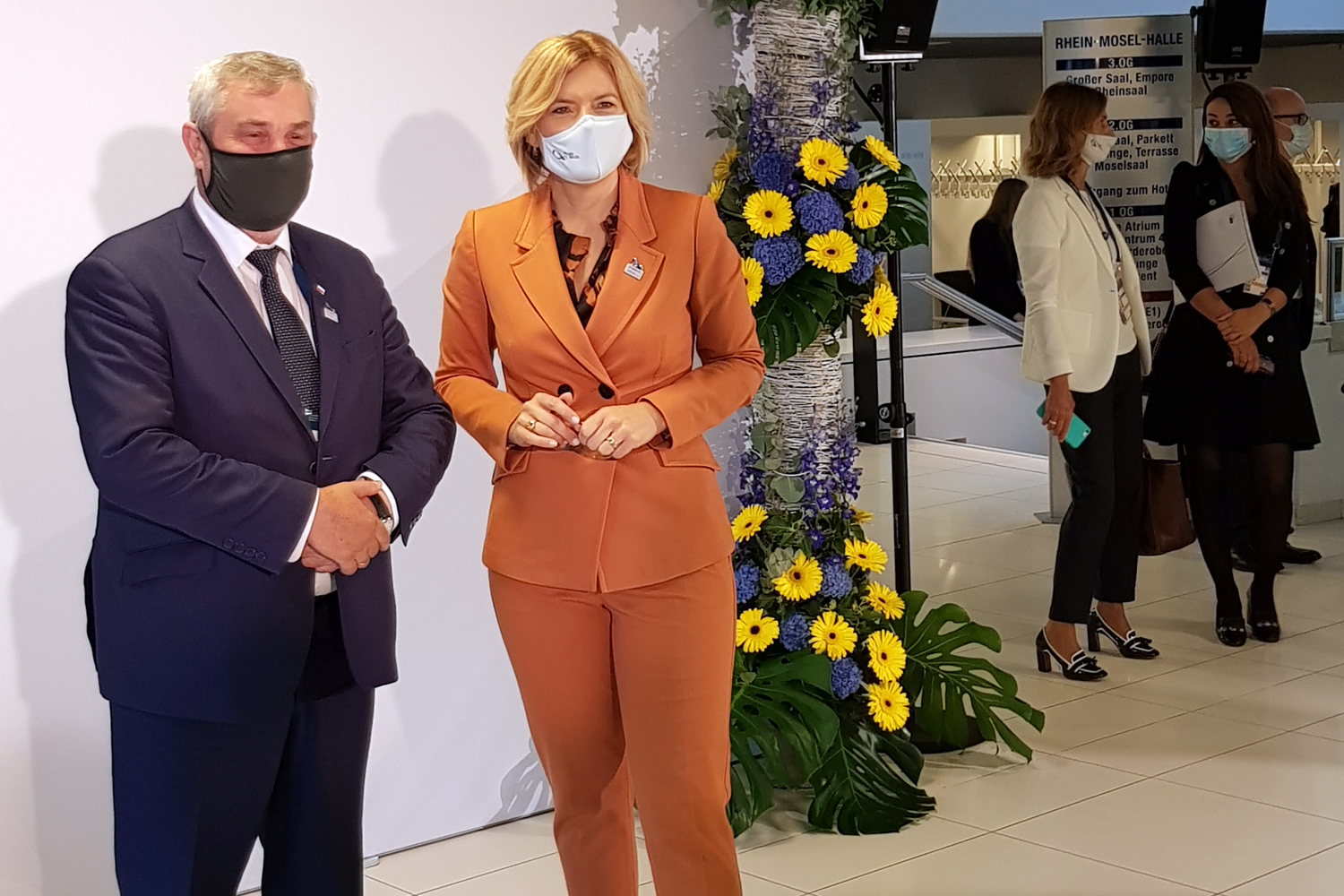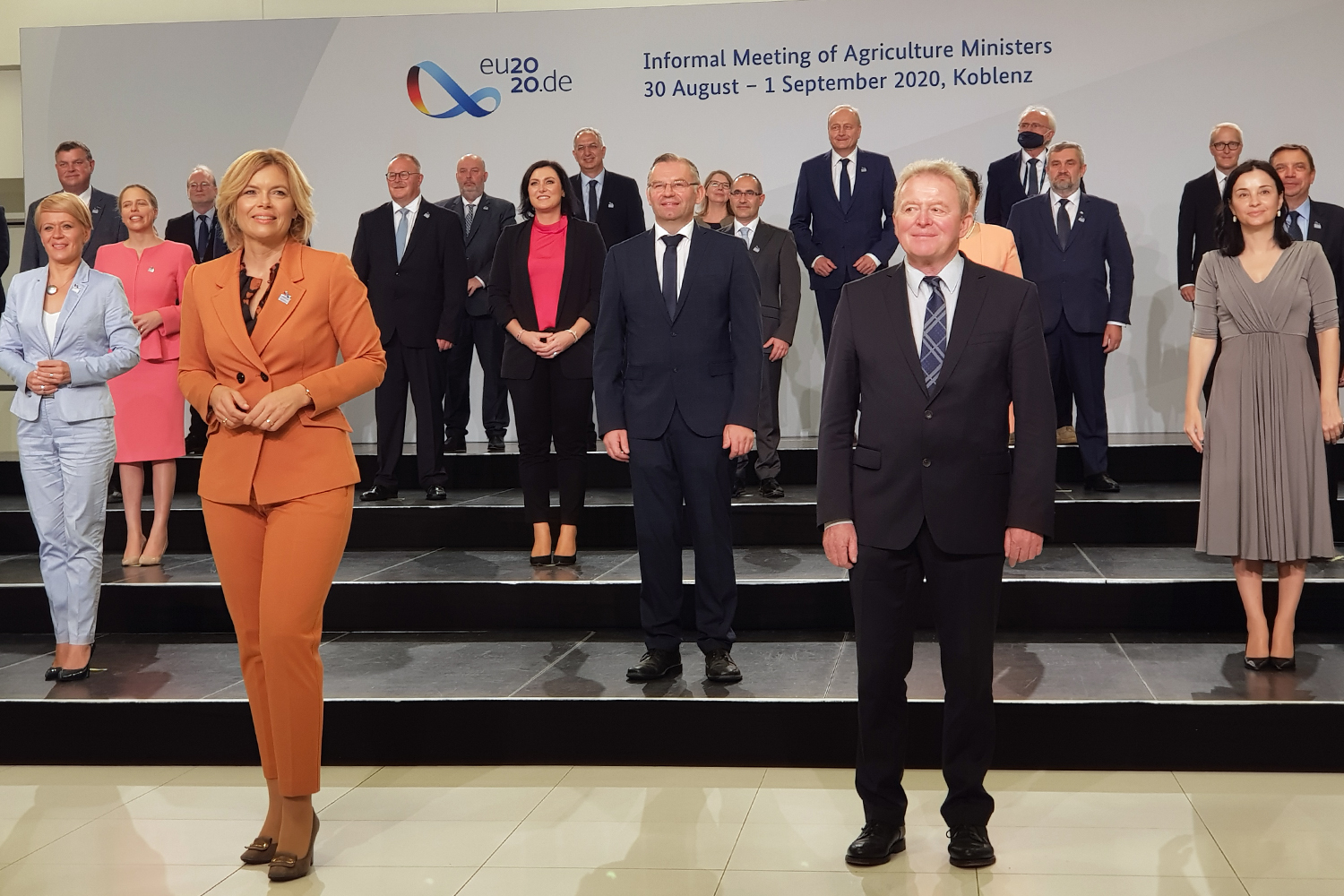Current issues in agriculture – meeting of EU agriculture ministers
01.09.2020
‘Will growing respect for farmers and for their work, thanks to which European agriculture proved itself up to the task of dealing with the COVID-19 crisis, translate into income for farmers? It seems that a rich society would like to pay as little as possible for food,’ Minister Jan Krzysztof Ardanowski said today during an informal meeting of the AGRIFISH Council.

The meeting was held in Koblenz, Germany, as part of Germany’s EU Presidency. Janusz Wojciechowski, EU Commissioner for Agriculture, attended the meeting.
The main topics included: the situation in the foodstuff economy related to the COVID-19 crisis, assessment of the effects of measures taken and preventing future crises. The German Presidency prepared a discussion paper: ‘Lessons learned from the coronavirus crisis - resilience of the agricultural and food sectors, appreciation of food, agriculture, and animals’.
Minister Ardanowski pointed out that the crisis related to the COVID-19 pandemic revealed where there are distortions in the functioning of food supply chains and issues with the free movement of agri-food products and the free movement of workers. He also said that breaks in food chains also impeded trade beyond the EU, the effects of which affected the agri-food sector in Poland as well.
The priority for agriculture is to ensure food security within the EU, which can be guaranteed only by strong European agriculture in which production is cost-effective and competitive, and which has adequate resources and access to agricultural inputs.
‘Food security can only be ensured by strong and stable European agriculture based on profitable European farms. This matter should be taken into account in trade agreements between the EU and third countries, in particular Mercosur states,’ the Polish Minister of Agriculture emphasised.
Jan Krzysztof Ardanowski stressed that for food supply chains to function efficiently, particularly during a crisis, financial support from the EU budget would be required in Poland for the creation and operation of local centres for purchasing and distribution of agricultural products, implementation of new technologies to make products that meet the requirements of consumers and processors, and the implementation of instruments that reduce the risk of agricultural product prices falling below production costs.
‘EU funds should be used to support operating locally: local food distribution centres and new technologies for making the products expected by consumers. Mechanisms that reduce the risk of prices falling below the production break-even point should also be supported. These are measures that farmers expect,’ the Polish Minister said.
The other topic proposed for the ministers to discuss at the informal meeting of the AGRIFISH Council were the issues related to animal welfare, animal transport conditions and food product labelling.
‘I support country-of-origin labelling. We want consumers to know what they are buying. If a product is of mixed origin, the origin of basic ingredients should be stated as well,’ the Polish Minister of Agriculture said.
Minister Ardanowski emphasised that Poland would like to see an EU-wide animal product marking system with labels that indicate animal welfare.
The crucial issue is determining the conditions in which animals are kept, serving as eligibility criteria, because farms probably will have to be adapted and production reorganised in order to join the scheme.
‘The term welfare is understood in various ways. The marking is necessary, but it must be a European one, based on specific criteria, so that everybody has the same understanding of what is meant by welfare. The slaughter of animals should take place as near to the place where the animal lives as possible, as close as possible to the farm where the animal was raised’.
Minister Ardanowski added that given the current work on the future CAP and planned measures, specifying in advance the requirements for farms keeping animals in enhanced welfare conditions would enable adequate targeting of support in order to upgrade such farms.
During their visit to Germany, agricultural ministers spent time in the region where vines are cultivated and wine is produced. The hosts proposed a visit to Winningen on the river Moselle, so that the ministers could learn about interesting digitalisation projects related to the cultivation of vines on steep slopes. This also presented a good opportunity for direct bilateral talks between ministers and an exchange of views with Commissioner Janusz Wojciechowski.
Photos (2)
- Last updated on:
- 06.10.2020 17:23 Sławomir Mucha
- First published on:
- 03.09.2020 14:10 Iwona Chromiak


